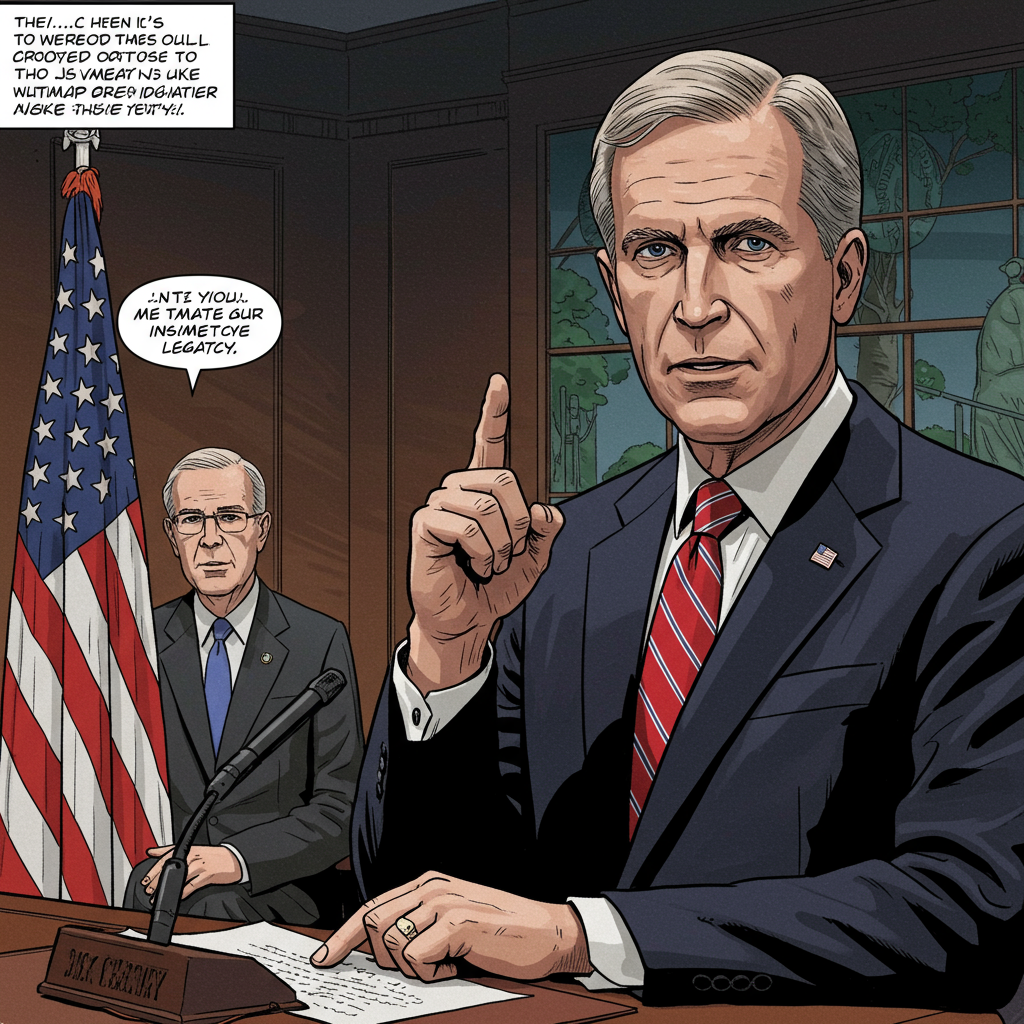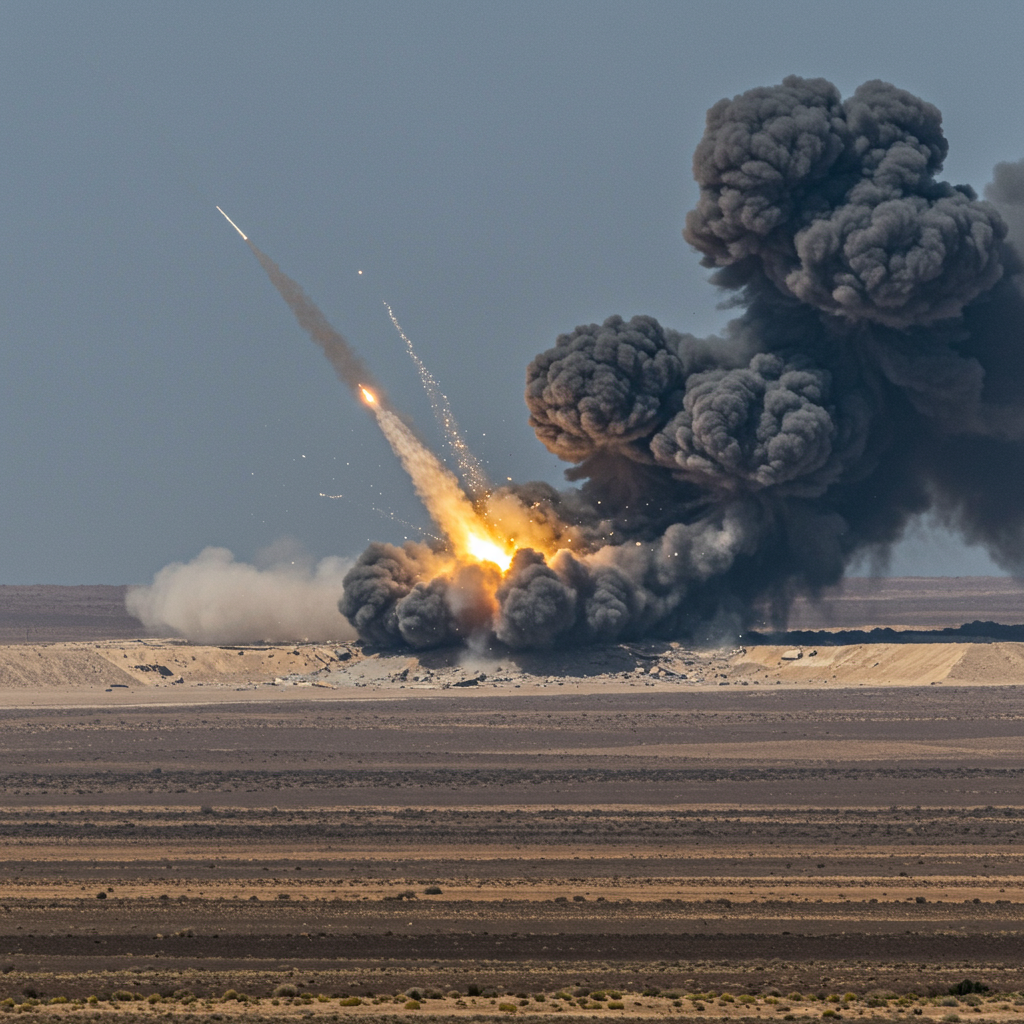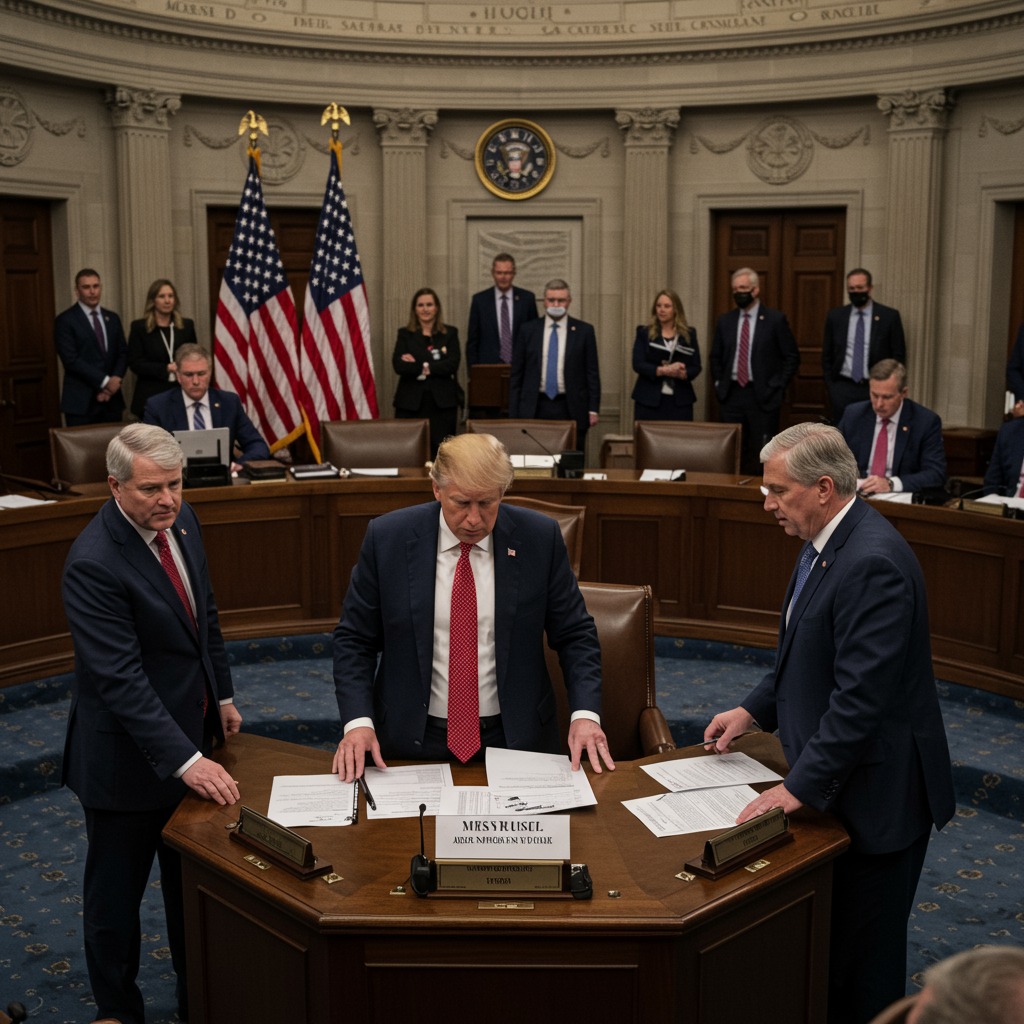Richard Bruce Cheney stands as one of the most consequential and controversial figures in modern American political history. His career, spanning decades at the heart of the Republican Party, ultimately saw him redefine the office of Vice President with a reach and influence rarely, if ever, seen before. This transformation from ultimate GOP insider to a figure increasingly outside the mainstream of his own party offers a compelling look into the shifting dynamics of power, policy, and political identity within the United States. Understanding Dick Cheney’s journey provides crucial insights into the evolution of American foreign policy, executive authority, and the enduring fault lines within conservatism.
The Architect of Executive Power: Cheney’s Rise to Unprecedented Influence
Dick Cheney’s political ascent was marked by a keen intellect and a deep understanding of governmental mechanics, honed through various roles including White House Chief of Staff for President Gerald Ford and Secretary of Defense under President George H.W. Bush. His reputation as a sober, strategic, and profoundly influential operative was firmly established long before he joined the Bush-Cheney ticket. However, it was his tenure as Vice President from 2001 to 2009 that cemented his legacy, fundamentally reshaping the scope and authority of his office.
Following the devastating terrorist attacks of September 11, 2001, Cheney emerged as a central figure in the Bush administration’s response. Operating with a small, tightly-knit group of advisors, often referred to as “the Vulcans,” he masterminded a series of policy initiatives designed to confront what he perceived as an existential threat to American security. These policies, largely developed and implemented with minimal public scrutiny, dramatically expanded executive power, particularly in areas of national security, surveillance, and intelligence gathering.
Redefining the Vice Presidency in the Post-9/11 Era
Cheney’s approach to the Vice Presidency was distinct. He wasn’t merely a subordinate; he was an active co-strategist and implementer of policy, particularly in foreign affairs and defense. His office became a hub of significant power, often bypassing traditional governmental channels. This proactive stance allowed him to steer crucial decisions regarding counterterrorism efforts, including enhanced interrogation techniques and warrantless surveillance programs. These actions, while justified by the administration as necessary for national security, sparked widespread debate about constitutional limits and civil liberties.
His influence extended to advocating for the invasion of Iraq, based on intelligence that later proved to be flawed regarding weapons of mass destruction. This decision profoundly impacted the trajectory of American foreign policy and remains one of the most criticized aspects of his vice presidency. Critics often point to his assertive role in pushing for military intervention and his skepticism towards diplomatic solutions.
The Long Road from Insider to Outsider
Despite his deep roots within the Republican Party establishment, Dick Cheney’s later years saw him become increasingly estranged from the party’s evolving base, particularly with the rise of Donald Trump. For decades, Cheney epitomized a hawkish, interventionist, and fiscally conservative brand of Republicanism. This ideology, often labeled “neoconservatism,” was a dominant force within the GOP for much of the late 20th and early 21st centuries. His views on strong national defense, American exceptionalism, and a robust global presence were once hallmarks of the party.
However, the Republican Party began to shift. A growing segment of the GOP, fueled by populist sentiment and a weariness of protracted foreign engagements, moved away from the interventionist policies Cheney championed. The “America First” movement, with its emphasis on reducing foreign entanglements and focusing on domestic issues, directly challenged the tenets of Cheney’s political philosophy.
A Principled Stand: Cheney’s Critique of Modern Republicanism
This ideological divergence became starkly apparent with the election of Donald Trump. Cheney, along with his daughter Liz Cheney, became vocal critics of Trump’s leadership, particularly his challenges to democratic institutions and his approach to foreign policy. This opposition put him at odds with a significant portion of the Republican Party, transforming the quintessential insider into an outspoken critic from the periphery.
His critique was not about personal animosity but about fundamental principles. Cheney viewed Trump’s rhetoric and actions as a threat to the constitutional order and the conservative values he had spent a lifetime upholding. This stand, while applauded by some, alienated him from many who now identified with the newer populist direction of the party. It marked a poignant shift, demonstrating how political identities and party allegiances can evolve, sometimes leaving even the most entrenched figures feeling out of step.
Enduring Legacy and Lasting Debates
Dick Cheney’s impact on American governance and foreign policy continues to be debated. His proponents credit him with safeguarding the nation in a perilous time, making tough decisions necessary to prevent further attacks. They argue his strong stance and assertive policies provided stability and projection of American power when it was most needed. His commitment to national security, they contend, was unwavering and driven by a genuine concern for the country’s safety.
Conversely, his critics argue that his policies led to significant overreaches of executive authority, undermined civil liberties, and entangled the U.S. in costly and protracted conflicts with questionable justifications. The long-term consequences of the Iraq War, the use of torture, and the expansion of surveillance programs are often cited as dark stains on his record, contributing to a deep public distrust in government and institutions.
The “outsider” status he experienced later in life serves as a powerful commentary on the fluidity of political movements. It highlights how even figures who embody a particular era or ideology can find themselves marginalized as the political landscape shifts dramatically. His story is a testament to the complex interplay of power, principle, and party loyalty in the American political system.
Frequently Asked Questions
How did Dick Cheney reshape the Vice Presidency?
Dick Cheney dramatically expanded the power and influence of the Vice Presidency, especially during his tenure from 2001 to 2009. He operated as a co-strategist with President Bush, particularly in national security and foreign policy. His office became a central hub for policy formulation, often bypassing traditional departments. This included a significant role in developing the administration’s response to the 9/11 attacks, advocating for expanded executive authority, and driving the decision-making process for the Iraq War. He transformed the role from a largely ceremonial one into a powerful, active policymaking position.
What led to Dick Cheney’s shift from GOP insider to perceived outsider?
For decades, Dick Cheney was the epitome of a Republican insider, championing a strong, interventionist foreign policy and conservative fiscal principles. However, the Republican Party underwent a significant ideological shift, particularly with the rise of populist movements and Donald Trump. Trump’s “America First” agenda, with its skepticism towards international intervention and challenges to established democratic norms, directly contrasted with Cheney’s long-held beliefs. His vocal criticism of Trump and his administration’s actions positioned him and his daughter, Liz Cheney, as outsiders within a party that had largely embraced the new direction, highlighting a principled divergence from the evolving GOP base.
What are the enduring legacies of Dick Cheney’s post-9/11 policies?
Dick Cheney’s post-9/11 policies left several significant and debated legacies. One key legacy is the expansion of executive power, particularly in areas of national security, surveillance, and intelligence gathering, which continue to influence government operations. Another is the lasting debate over the Iraq War, its justification, and its long-term impact on the Middle East and U.S. foreign policy. His policies also sparked ongoing discussions about the balance between national security and civil liberties, and the ethical considerations surrounding enhanced interrogation techniques. These decisions profoundly shaped America’s role in the world and its domestic legal landscape for decades.
Conclusion
Dick Cheney’s political narrative is a powerful illustration of the profound impact an individual can have on the course of a nation. From his early days as a shrewd political operative to his unprecedented power as Vice President, and ultimately to his later role as a critic of his own party, Cheney consistently shaped and reacted to the forces of American politics. His legacy, marked by both unwavering conviction and intense controversy, serves as a crucial case study in the complexities of leadership, the limits of power, and the ever-shifting sands of political ideology. As the nation continues to grapple with issues of executive authority, foreign intervention, and party identity, the shadow of Dick Cheney’s influence remains long and undeniable.




